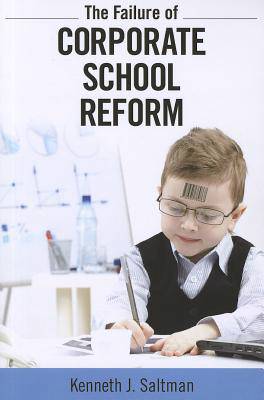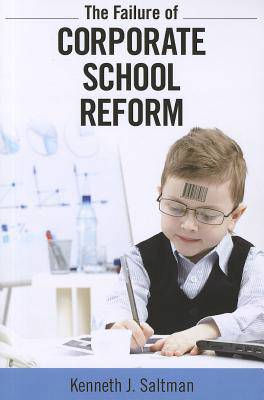
- Afhalen na 1 uur in een winkel met voorraad
- Gratis thuislevering in België vanaf € 30
- Ruim aanbod met 7 miljoen producten
- Afhalen na 1 uur in een winkel met voorraad
- Gratis thuislevering in België vanaf € 30
- Ruim aanbod met 7 miljoen producten
Zoeken
€ 86,95
+ 173 punten
Uitvoering
Omschrijving
Corporate school reforms, especially privatization, union busting, and high-stakes testing have been hailed as the last best hope for public education. Yet, as Kenneth Saltman powerfully argues in this new book, corporate school reforms have decisively failed to deliver on what their proponents have promised for two decades: higher test scores and lower costs. As Saltman illustrates, the failures of corporate school reform are far greater and more destructive than they seem. Left unchecked, corporate school reform fails to challenge and in fact worsens the most pressing problems facing public schooling, including radical funding inequalities, racial segregation, and anti-intellectualism. But it is not too late for change. Against both corporate school reformers and its liberal critics, this book argues for the expansion of democratic pedagogies and a new common school movement that will lead to broader social renewal.
Specificaties
Betrokkenen
- Auteur(s):
- Uitgeverij:
Inhoud
- Aantal bladzijden:
- 160
- Taal:
- Engels
- Reeks:
Eigenschappen
- Productcode (EAN):
- 9781612052106
- Verschijningsdatum:
- 30/12/2012
- Uitvoering:
- Paperback
- Formaat:
- Trade paperback (VS)
- Afmetingen:
- 150 mm x 226 mm
- Gewicht:
- 226 g

Alleen bij Standaard Boekhandel
+ 173 punten op je klantenkaart van Standaard Boekhandel
Beoordelingen
We publiceren alleen reviews die voldoen aan de voorwaarden voor reviews. Bekijk onze voorwaarden voor reviews.











